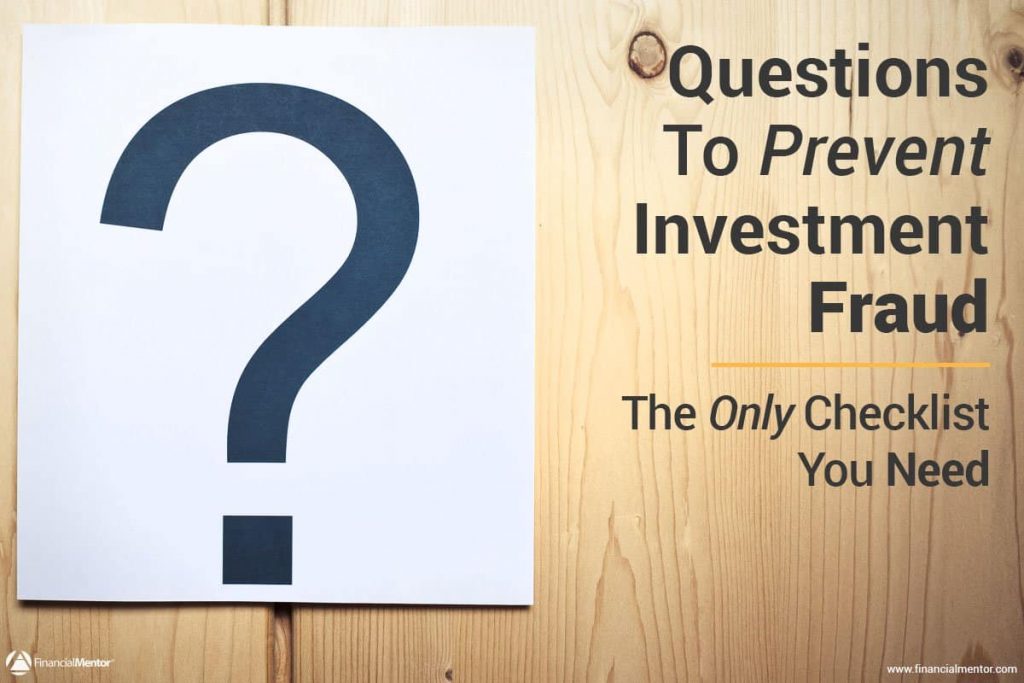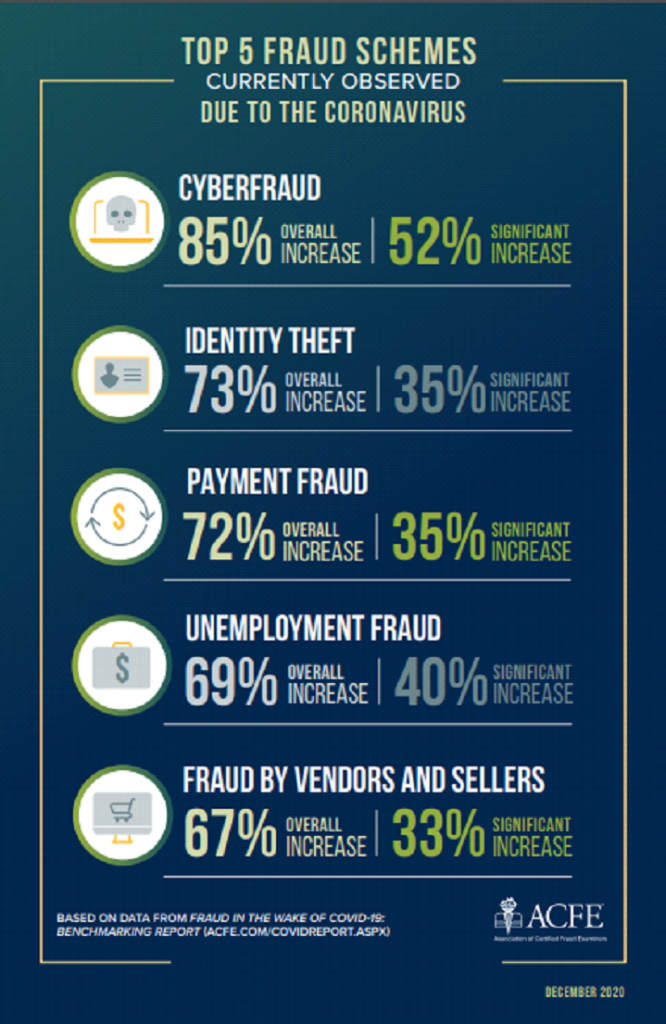So you want to invest in gold companies, huh? Well, let me tell you, it can be a highly lucrative investment if you do your due diligence. The market is full of opportunities, but it’s also ripe with scams. That’s why researching gold companies is absolutely crucial. You need to dig deep, ask the right questions, and analyze the company’s financial health and reputation. In this article, we’ll explore the key elements you need to consider to avoid falling into investment scams and make informed decisions when it comes to investing in gold. So, buckle up and let’s get started!

This image is property of www.newsdirect.com.
Understanding Gold Investments
Investing in gold can be an attractive option for individuals looking to diversify their investment portfolios and hedge against economic uncertainty. Gold has long been considered a safe haven asset, with its value often increasing during times of market volatility. However, before diving into the world of gold investments, it is crucial to have a solid understanding of the benefits, types of investments available, as well as the risks and challenges associated with this asset class.
Introduction to Gold Investing
Gold investing refers to the act of purchasing and holding gold in various forms, such as bars, coins, or even through gold-backed securities. It is important to note that investing in gold is different from trading gold. Investors typically buy gold with a long-term perspective, anticipating its value to appreciate over time. Gold can serve as a potential store of value and a hedge against inflation, currency fluctuations, and geopolitical risks.
Benefits of Investing in Gold
There are several benefits to investing in gold that make it an attractive asset class for diversification purposes:
-
Diversification: Gold has historically exhibited low correlations with traditional financial assets such as stocks and bonds, making it an effective diversification tool. Adding gold to a portfolio can potentially reduce overall risk and increase stability.
-
Inflation Hedge: Gold has proven its ability to maintain value during periods of inflation. As the purchasing power of fiat currencies declines, the value of gold often increases, providing a hedge against rising prices.
-
Store of Value: Gold has a long history of being considered a reliable store of value. Unlike paper-based assets, gold is tangible and has intrinsic value. It has been used as a form of currency and a medium of exchange for thousands of years.
-
Geopolitical Risk Mitigation: Gold is often seen as a safe haven during times of political or economic instability. Investors turn to gold as a way to protect their wealth from potential risks associated with geopolitical tensions or crises.
-
Portfolio Insurance: Gold investments can act as an insurance policy against extreme market events. During times of market turmoil, gold prices tend to rise, potentially offsetting losses in other areas of an investment portfolio.
Types of Gold Investments
Investors have a variety of options when it comes to investing in gold. Some common types of gold investments include:
-
Physical Gold: This refers to purchasing and owning physical gold in the form of bars or coins. Physical gold allows investors to hold the actual asset and have direct ownership.
-
Exchange-Traded Funds (ETFs): Gold ETFs are investment funds that hold physical gold or derivatives closely tied to the price of gold. They offer investors an opportunity to gain exposure to the gold market without the need to physically store or handle the gold.
-
Gold Mining Stocks: Investing in gold mining companies allows investors to indirectly gain exposure to the gold market. These stocks can potentially provide higher returns than physical gold but also come with additional risks.
-
Futures and Options: Sophisticated investors may choose to invest in gold futures contracts or options. These financial derivatives provide the opportunity to profit from the price movements of gold without owning the physical metal.
-
Gold Royalty and Streaming Companies: This type of investment involves providing financing to gold mining companies in exchange for a percentage of future production or sales.
Risks and Challenges of Gold Investing
While gold investments offer several benefits, there are also certain risks and challenges that investors should be aware of:
-
Price Volatility: Like any other asset, the price of gold is subject to fluctuations. While it has historically maintained value over the long term, short-term price volatility can present risks for investors.
-
Market Manipulation: The gold market, like any other financial market, is susceptible to manipulation and fraudulent activities. Investors should be cautious and conduct thorough research before engaging with any gold investment opportunities.
-
Storage and Insurance Costs: Physical gold investments require secure storage and may involve additional costs, such as insurance and transportation fees. These expenses should be considered when evaluating the overall investment potential.
-
Liquidity Concerns: Some forms of gold investments, such as physical gold and certain gold mining stocks, may have limited liquidity. This means that it may be challenging to sell these investments quickly at the desired price.
-
Regulatory and Political Risks: Investing in gold can be subject to regulatory changes and political risks, especially when it comes to mining operations in different countries. Changes in government policies or regulations can impact the profitability of gold investments.
-
Opportunity Cost: While gold can provide stability and potential returns, it does not generate any income or dividends. Investors should consider the opportunity cost of not investing in other income-generating assets when allocating capital to gold.
-
Storage of Physical Gold: Owning physical gold comes with the responsibility of ensuring proper storage and security. This may require additional costs and effort to protect the asset from theft or damage.
It is essential for investors to carefully assess their risk tolerance and financial goals before deciding to invest in gold. Conducting thorough research on gold companies can help mitigate potential risks and make informed investment decisions.
Why Researching Gold Companies is Important
Gold companies play a vital role in the gold investing ecosystem. As an investor, it is crucial to thoroughly research these companies before making any investment decisions. This research serves several purposes, including understanding the financial health of the company, identifying potential risks or red flags, and ensuring transparency and legitimacy. By conducting due diligence on gold companies, investors can avoid investment scams and fraud, and make more informed choices.
Importance of Due Diligence
Due diligence is the process of conducting thorough research and analysis before engaging in any business or investment transaction. When it comes to investing in gold companies, due diligence is crucial because it helps investors gain a comprehensive understanding of the company’s operations, financials, and overall credibility. It allows investors to make informed decisions based on reliable information and mitigate potential risks.
Avoiding Investment Scams and Fraud
The financial industry, including the gold sector, can attract fraudulent activities and investment scams. Thorough research on gold companies can help investors identify and avoid these fraudulent schemes. Scammers often prey upon unsuspecting investors by promising high returns or exclusive investment opportunities. By conducting research, investors can recognize red flags and make educated decisions, minimizing the risk of becoming a victim of fraud.
Identifying Reputable Gold Companies
Researching gold companies allows investors to identify reputable companies with a strong track record and transparent operations. Reputable companies prioritize clear communication, adhere to regulatory requirements, and have a demonstrated history of success. By evaluating a company’s reputation, investors can assess the level of trust and confidence they can place in the company.
Understanding Company Financials and Performance
Researching gold company financials is essential for evaluating the company’s financial health and performance. Understanding financial statements, revenue, earnings, cash flow, and debt levels provides insights into the company’s profitability and long-term sustainability. By analyzing these financial indicators, investors can gauge the company’s ability to generate returns for shareholders and weather market fluctuations.

This image is property of imgnew.outlookindia.com.
Key Factors to Consider in Gold Company Research
When researching gold companies, there are several key factors to consider. These factors provide insights into the company’s history, reputation, management team, exploration and production capabilities, ownership structure, financial stability, and industry affiliations. Evaluating these factors can help investors gain a comprehensive understanding of the company and make informed investment decisions.
Company History and Reputation
The company’s history and reputation provide insights into its track record and credibility within the industry. Researching the company’s background, including its founding, achievements, and milestones, can help investors assess the company’s stability and longevity in the gold market.
Management Team and Expertise
The management team’s expertise and experience are crucial factors to consider when evaluating a gold company. Researching the backgrounds of key executives, board members, and management personnel can provide insights into their professional achievements and their ability to lead the company successfully.
Exploration and Production Capabilities
Understanding a gold company’s exploration and production capabilities is vital for assessing its potential for growth and profitability. Researching the company’s mining projects, production methods, and technological advancements provides insights into its ability to meet production targets efficiently.
Ownership Structure and Licensing
Researching the ownership structure and licensing of a gold company helps investors understand the company’s governance and compliance with regulatory requirements. It provides insights into the company’s ownership distribution, potential conflicts of interest, and licensing agreements with relevant authorities.
Financial Stability and Performance
A gold company’s financial stability and performance play a crucial role in its long-term viability. Researching financial statements, including balance sheets, income statements, and cash flow statements, allows investors to assess the company’s liquidity, profitability, and debt levels.
Industry Affiliations and Partnerships
Researching a gold company’s industry affiliations and partnerships helps investors understand its network within the gold industry. Being part of industry associations or having strategic partnerships can indicate the company’s commitment to best practices, standards, and collaboration within the industry.
Researching Gold Company Financials
Evaluating the financial health of a gold company requires a thorough analysis of its financial statements and performance indicators. Researching and understanding these financial factors allows investors to make informed decisions based on objective data.
Reading Financial Statements
Financial statements, including balance sheets, income statements, and cash flow statements, provide a snapshot of a company’s financial performance. Reading and understanding these statements is crucial for assessing a gold company’s financial health and profitability.
Analyzing Revenue and Earnings
Analyzing a gold company’s revenue and earnings provides insights into its ability to generate income from its mining operations. Understanding how revenue is generated and the consistency of earnings allows investors to evaluate the company’s growth potential and profitability.
Examining Cash Flow and Debt Levels
Examining a gold company’s cash flow and debt levels is essential for assessing its liquidity and financial stability. Positive cash flow and a manageable level of debt indicate a company’s ability to meet financial obligations and fund future growth.
Assessing Profitability and Margins
Assessing a gold company’s profitability and profit margins helps investors evaluate its ability to generate returns for shareholders. Profitability indicators such as gross margin, operating margin, and net margin provide insights into the company’s efficiency and profitability.
Understanding Asset Valuation and Reserves
A gold company’s asset valuation and reserves are crucial factors to consider when assessing its potential for future growth and sustainability. Researching the company’s mineral reserves, their valuation, and estimated lifespan provides insights into its long-term viability and value proposition to investors.

This image is property of image.isu.pub.
Due Diligence on Gold Company Operations
Understanding a gold company’s operations is a fundamental aspect of conducting due diligence. Researching and evaluating various aspects of the company’s operations helps investors assess its efficiency, social and environmental responsibility, growth plans, and potential risks.
Understanding Mining and Extraction Processes
Understanding a gold company’s mining and extraction processes provides insights into the efficiency and productivity of its operations. Researching the technology, equipment, and methodologies used can help investors evaluate the company’s ability to meet production targets.
Evaluating Production Costs and Efficiency
Evaluating a gold company’s production costs and efficiency is crucial for assessing its profitability and competitiveness in the market. Researching the company’s cost structure, efficiency measures, and cost-saving initiatives provides insights into its ability to generate revenue and control expenses.
Assessing Environmental and Social Responsibility
Assessing a gold company’s environmental and social responsibility is important for socially conscious investors. Researching the company’s adherence to environmental regulations, community engagement initiatives, and sustainability practices helps investors evaluate its commitment to responsible mining practices.
Exploring Expansion and Growth Plans
Researching a gold company’s expansion and growth plans allows investors to assess its potential for future profitability. Understanding the company’s exploration projects, development plans, and expansion strategies provides insights into its ability to capitalize on opportunities and generate long-term shareholder value.
Researching Geopolitical and Regulatory Risks
Researching geopolitical and regulatory risks is crucial when evaluating gold companies operating in different countries. Understanding the political and regulatory landscape of a company’s operational regions helps investors assess potential risks such as changes in government policies, taxation, or foreign ownership restrictions.
Monitoring Industry and Market Trends
Researching industry and market trends is important for staying informed about the broader gold market environment. Monitoring factors such as supply and demand dynamics, price trends, and geopolitical events helps investors make educated decisions based on current market conditions.
Evaluating Gold Company Management
Evaluating the management team of a gold company is essential for assessing its leadership capabilities and decision-making processes. Researching and analyzing key aspects of management provides insights into their track record, expertise, decision-making abilities, and corporate governance practices.
Examining the Track Record of Management Team
Examining the track record of a gold company’s management team helps investors understand their past achievements and performance. Researching their ability to deliver on commitments and generate value for shareholders provides insights into their leadership capabilities.
Analyzing their Experience and Expertise
Analyzing the experience and expertise of a gold company’s management team is crucial for assessing their ability to navigate the complexities of the industry. Researching their educational background, industry experience, and relevant achievements helps investors evaluate their qualifications and domain knowledge.
Assessing their Decision-Making Abilities
Assessing the decision-making abilities of a gold company’s management team is important for evaluating their strategic vision and operational execution. Researching their approach to risk management, problem-solving, and capital allocation provides insights into their ability to make timely and informed decisions.
Evaluating their Corporate Governance Practices
Evaluating a gold company’s corporate governance practices helps investors assess the level of transparency, accountability, and integrity within the organization. Researching the company’s governance structure, board composition, and adherence to industry best practices provides insights into the company’s commitment to ethical conduct and shareholder rights.
Identifying Potential Conflicts of Interest
Identifying potential conflicts of interest within the management team is essential for understanding any potential biases or risks that may impact the company’s operations. Researching the backgrounds of key executives and their relationships with other industry players helps investors identify any potential conflicts that may affect decision-making.

This image is property of www.financialmentor.com.
Utilizing External Resources
When researching gold companies, investors can benefit from utilizing external resources to gain insights and additional perspectives. These resources include research reports, expert opinions, industry publications, online investor communities, and seeking advice from financial professionals.
Consulting Research Reports and Analysis
Consulting research reports and analysis conducted by reputable financial institutions or investment research firms can provide valuable insights into gold companies. These reports often compile comprehensive data, industry trends, and expert opinions, helping investors make well-informed investment decisions.
Considering Expert Opinions and Ratings
Considering expert opinions and ratings provides investors with additional perspectives on gold companies’ potential and performance. Expert commentators, analysts, or industry insiders may provide insights that complement an investor’s research and analysis.
Reviewing Industry Publications and News
Reviewing industry publications and news is essential for staying up-to-date with the latest developments and trends in the gold market. Publications specific to the gold industry, financial news outlets, and investment magazines can provide valuable information and analysis.
Using Online Investor Communities and Forums
Engaging with online investor communities and forums can provide a platform for sharing insights, experiences, and opinions on gold companies. Participating in discussions and seeking input from other investors can help in gaining a broader perspective and identifying potential risks or opportunities.
Seeking Advice from Financial Professionals
Seeking advice from financial professionals, such as financial advisors or wealth managers, can provide personalized guidance based on individual investment goals and risk tolerances. These professionals can help investors navigate the complexities of gold investing and tailor investment strategies to their specific needs.
Performing Background Checks
Performing background checks on gold companies is crucial for verifying their credentials, reputation, and compliance with legal and regulatory requirements. Thorough research can help identify any potential issues or red flags, ensuring investors are engaging with legitimate and trustworthy entities.
Verifying Company Credentials and Licenses
Verifying a gold company’s credentials and licenses is essential for ensuring it operates within legal and regulatory frameworks. Researching licenses, permits, and certifications helps investors confirm a company’s compliance with local and international regulations.
Checking for Legal and Regulatory Issues
Checking for any legal or regulatory issues involving a gold company is important for avoiding potential risks or legal complications. Researching lawsuits, regulatory violations, or disputes can provide insights into the company’s track record and potential liabilities.
Examining Previous Legal Disputes or Violations
Examining a gold company’s history of legal disputes or violations helps investors evaluate its adherence to ethical standards and regulatory compliance. Researching previous lawsuits, fines, or penalties provides insights into any potential legal risks associated with the company.
Reviewing Customer and Investor Feedback
Reviewing customer and investor feedback can provide valuable insights into a gold company’s reputation and customer satisfaction. Researching online reviews, testimonials, and investor feedback helps investors gauge the company’s performance, customer service, and credibility.
Searching for News or Media Coverage
Searching for news or media coverage related to a gold company can help investors stay informed about its recent activities, achievements, or controversies. News articles and media coverage can shed light on the company’s reputation, operational updates, or any significant events that may impact its prospects.

This image is property of privacyhub.cyberghostvpn.com.
Avoiding Investment Scams and Fraud
One of the key reasons for conducting thorough research on gold companies is to avoid falling victim to investment scams or fraudulent schemes. By being aware of common investment scams, recognizing red flags, and seeking reliable information, investors can protect themselves from potential fraudulent activities.
Awareness of Common Investment Scams
Being aware of common investment scams helps investors recognize potential warning signs and avoid falling prey to fraudulent schemes. Scams such as Ponzi schemes, pump-and-dump schemes, and offshore investment scams are some examples that investors should be cautious of when considering gold investments.
Red Flags to Watch Out For
Certain red flags can indicate potential investment scams or fraudulent activities. Investors should watch out for promises of guaranteed high returns, unsolicited investment opportunities, pressure to invest quickly, and lack of transparency or reliable information. These red flags can help investors exercise caution and conduct thorough research before committing capital.
Checking for SEC Filings and Disclosures
Checking for Securities and Exchange Commission (SEC) filings and disclosures is important for validating a gold company’s compliance with regulations and its commitment to transparency. Researching these filings helps investors access reliable information about the company’s financials, operations, and potential risks.
Reviewing Company Communication and Transparency
Reviewing a gold company’s communication and transparency practices is crucial for evaluating its reliability and legitimacy. Investors should research the company’s website, investor presentations, and communication with shareholders to assess the level of transparency and openness.
Seeking Legal Advice if Necessary
If investors encounter potential investment scams or fraudulent activities, seeking legal advice from professionals specializing in securities law can provide guidance on protecting their rights and taking appropriate action. Consulting with legal experts can help investors navigate the complex legal landscape and seek recourse if necessary.
Combining Research with Personal Judgment
While conducting thorough research is crucial for making informed investment decisions, it is equally important to combine research with personal judgment. Each individual investor has unique investment goals, risk tolerance, and financial circumstances. Considering personal factors alongside research findings helps investors make decisions that align with their specific needs and objectives.
Using Research as a Foundation for Decision-Making
Research serves as the foundation for decision-making in gold investments. It provides objective data, insights, and analysis that can help guide investment strategies. By basing decisions on reliable information, investors can make more informed choices rather than relying solely on speculation or intuition.
Considering Personal Investment Goals and Risk Tolerance
Considering personal investment goals and risk tolerance is crucial for tailoring investment strategies to individual needs. Investors should assess their financial objectives, time horizon, and comfort level with risk before making investment decisions. Personal circumstances and preferences play a significant role in determining the appropriate level of exposure to gold investments.
Basing Decisions on a Well-Rounded Evaluation
Basing investment decisions on a well-rounded evaluation involves considering various factors, such as the research findings, personal financial goals, risk tolerance, and market conditions. By conducting a comprehensive evaluation, investors can make decisions that take into account multiple perspectives and minimize potential biases.
Seeking Professional Advice When Uncertain
When uncertain about investment decisions, seeking professional advice from financial advisors or wealth managers can provide valuable guidance. These professionals have expertise in the gold market and can offer personalized recommendations based on individual circumstances. Professional advice can help investors navigate complex investment strategies and mitigate potential risks.
In conclusion, researching gold companies is an essential step for investors interested in gold investments. Thorough due diligence helps investors avoid scams, identify reputable companies, understand financial health, evaluate management, and make well-informed investment decisions. By combining research with personal judgment and utilizing external resources, investors can navigate the gold market with confidence and potentially capitalize on the benefits offered by investing in gold.



